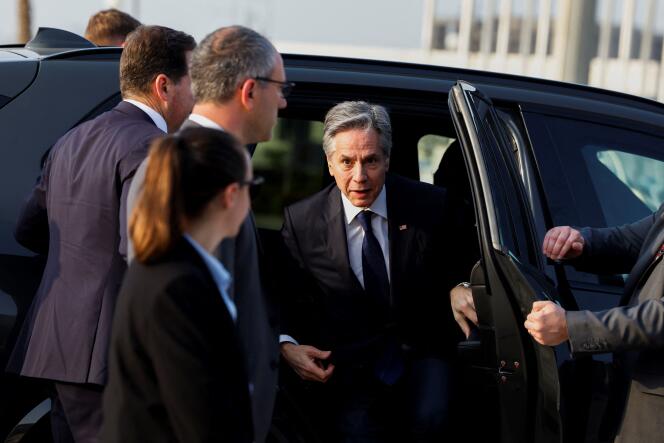


Buying time, without appearing to back down: This is at least one objective shared by Israeli Prime Minister Benjamin Netanyahu and US President Joe Biden. The two leaders still share the ambition of destroying Hamas's ability to cause harm. But, because of the ongoing humanitarian disaster in the Gaza Strip, the White House no longer supports the idea of a massive ground operation against the city of Rafah, in the south of the enclave. A US draft resolution circulating at the UN Security Council now calls for an "immediate and sustained ceasefire." According to the New York Times, it mentions the "deep concern about the threat of conflict-induced famine and epidemics." The Security Council will vote on the resolution on March 22.
In recent months, the US has blocked three resolutions along these lines. The White House's language has evolved. The phrase "humanitarian pause" has disappeared. The priority is now a halt of military operations, "tied to the release of the hostages" still in the hands of Hamas, according to Secretary of State Antony Blinken in an interview with the Saudi television channel Al-Hadath during his visit to Jeddah on Wednesday, March 20. Blinken also abandoned convoluted formulations about Washington waiting to see a convincing Israeli plan of action at Rafah. "What we don't want to see is a major ground operation because we don't see how that can be done without doing terrible harm to civilians," Blinken summed up in the same interview.
It took several weeks for the Biden administration to admit the obvious: a forced northward displacement of the refugees who had converged at Rafah would redouble the humanitarian catastrophe. From now on, the White House will argue for another option. Hence the invitation to the Israeli government to send a delegation to Washington in the next few days, ready to hear the analysis of the US military.
As a gesture of conciliation, Netanyahu has chosen to send two political figures to Washington, not military men: his closest adviser on relations with the US, Ron Dermer, and his national security adviser, Tzachi Hanegbi. Separately, Defense Minister Yoav Gallant, who makes no secret of his disagreements with the head of government over the objectives of the war, is also due to travel to the US capital to meet his counterpart, Lloyd Austin.
Netanyahu warned his fellow citizens on Thursday that the Rafah operation "will take some time." This is an admission of reality: a massive deployment would require the remobilization of reservists, which the army is not doing, despite the invasion threats hammered home by the prime minister since February 7.
You have 62.82% of this article left to read. The rest is for subscribers only.
